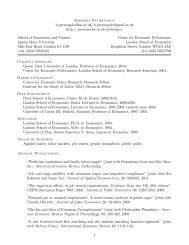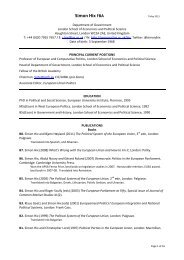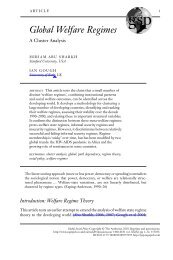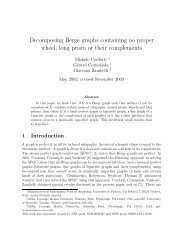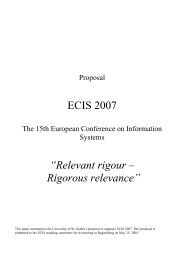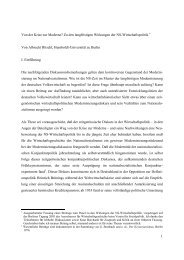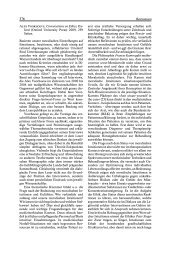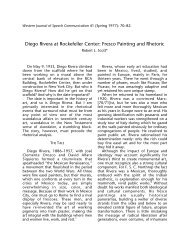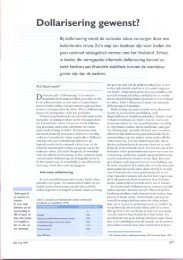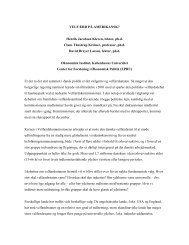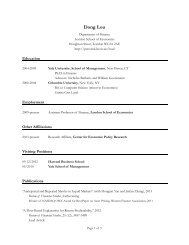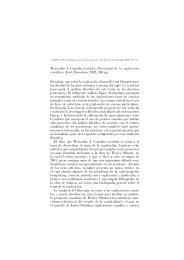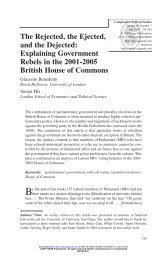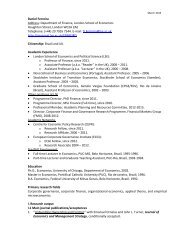View PDF - LSE - London School of Economics and Political Science
View PDF - LSE - London School of Economics and Political Science
View PDF - LSE - London School of Economics and Political Science
You also want an ePaper? Increase the reach of your titles
YUMPU automatically turns print PDFs into web optimized ePapers that Google loves.
embedded in the existing regulatory practices <strong>and</strong> institutional settings. In particular,<br />
this paper argues that China’s rights awareness currently rests largely on the rights to<br />
subsistence or economic security, without going further to claim rights against the state.<br />
Second, this paper is an attempt to respond to the urgent call to go “beyond empiricism”<br />
in studies on urban China, <strong>and</strong> to address “the critically important issues <strong>of</strong> social <strong>and</strong><br />
environmental justice” (Ma 2007:556). While expressing “a strong sense <strong>of</strong> empathy for<br />
the feelings <strong>and</strong> experiences <strong>of</strong> the disadvantaged individuals under study” (Ma<br />
2007:563), it is also important to build grounded knowledge about how nail-houses are<br />
received by local as well as non-local (migrant) residents. Third, this study pays<br />
attention to the implications <strong>of</strong> fitting migrants into the overall struggles against topdown<br />
impositions <strong>of</strong> urban development projects that affect their homes, albeit rented.<br />
The existing debates on urbanites’ struggles against urban transformation tend to focus<br />
implicitly on permanent residents, that is registered local households who enjoy<br />
comparatively more privileged access to urban <strong>and</strong> social services based on “local<br />
citizenship” (Smart <strong>and</strong> Smart 2001). This paper, however, critically examines the<br />
limits <strong>of</strong> such prioritisation <strong>of</strong> permanent residents, <strong>and</strong> advocates the urgency <strong>of</strong><br />
forming a broader alliance <strong>of</strong> urban inhabitants, including migrants.<br />
The rest <strong>of</strong> this paper consists <strong>of</strong> five sections. The first reviews literature on the right to<br />
the city <strong>and</strong> draws implications in relation to China’s urban contexts. The second<br />
section explains how nail-housesholds have emerged in China. The third examines the<br />
empirical data that illustrate how nail-houses are viewed by local residents. By revisiting<br />
the existing literature <strong>and</strong> the empirical findings, the fourth section elaborates<br />
on the limits <strong>of</strong> property rights activism <strong>and</strong> scrutinises the awareness <strong>of</strong> rights in<br />
China. The final section concludes by elucidating the implication <strong>of</strong> advocating a crossclass<br />
alliance between local citizens <strong>and</strong> migrants.<br />
Contextualising the right to the city: Whose rights count<br />
Recently, a number <strong>of</strong> academics, activists <strong>and</strong> ordinary citizens have been drawn<br />
towards the perspective <strong>of</strong> the right to the city for contemplating the prospect <strong>of</strong> making<br />
progressive urban interventions. The perspective has also been increasingly borrowed<br />
by international organisations, such as the UN Habitat, for the acquisition <strong>of</strong><br />
redistributive justice. The Lefebvrian notion <strong>of</strong> the right to the city, however, goes<br />
beyond this, <strong>and</strong> actively seeks political programmes to intervene <strong>and</strong> take control <strong>of</strong><br />
the process <strong>of</strong> the production <strong>of</strong> urban space (Lefebvre 2003):<br />
Shin, H.B. (2013) Antipode DOI: 10.1111/anti.12010 | Page 3 <strong>of</strong> 29



